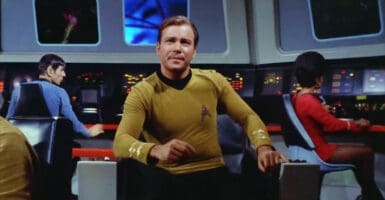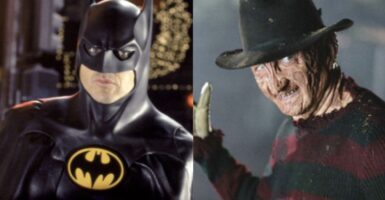Sandra Bullock Has The #1 Movie On Netflix
One of Sandra Bullock's most successful and controversial films is currently the number one most streamed movie on Netflix. But which?
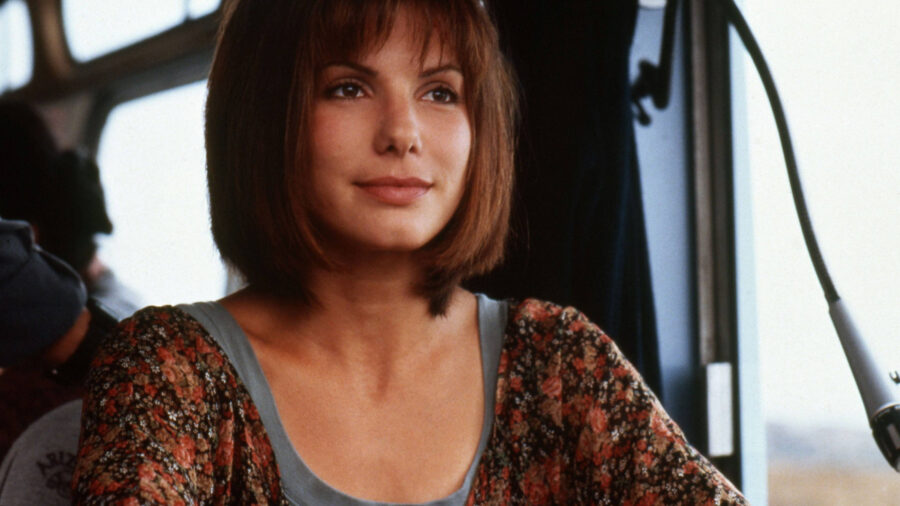
2009 was an interesting year for Sandra Bullock. Since breaking through to audiences in 1994 co-starring with Keanu Reeves in the action-thriller Speed (or as many know it, The Bus That Couldn’t Slow Down), she worked at a ridiculous productive pace, often starring in two or three movies a year. She exhibited a particular talent at comedies that posited her as awkward, but endearing, like Hope Floats, Two Weeks Notice, and Miss Congeniality, and occasionally made stabs at drama. But movies like the addiction story 28 Days and the period piece In Love and War never really hit the same as when we got the lovable goof Sandy Bullock that we were used to. Then in 2009, Bullock became the only actor in history to win a Golden Raspberry Award for Worst Actress and Academy Award for Best Actress in the same year. One of those movies is currently the single most streamed movie on Netflix USA, and it is called The Blind Side.
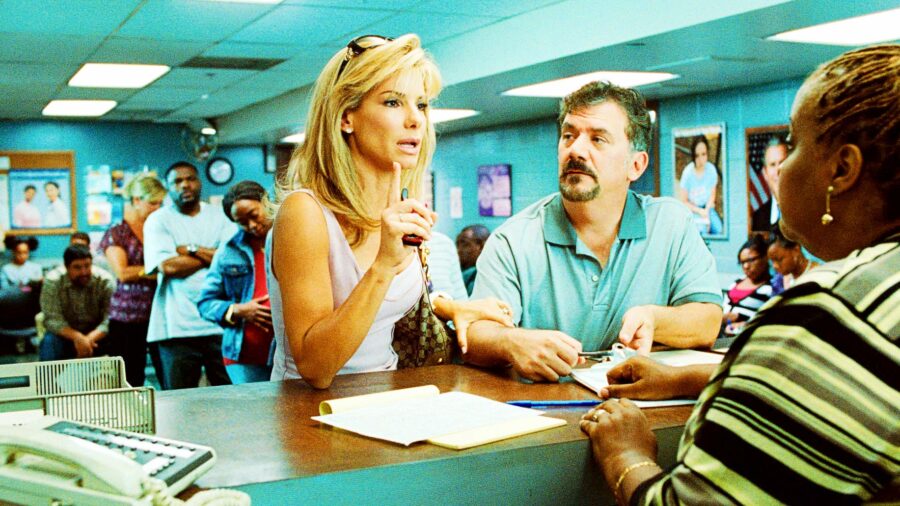
And just to be clear, The Blind Side is the one that won Sandra Bullock the Oscar (even though everyone knows it should have been for While You Were Sleeping). Adapted from the 2006 non-fiction book The Blind Side: Evolution of a Game by Michael Lewis, The Blind Side tells the story of NFL player Michael Oher, who rose from a severely impoverished and harrowing childhood to become a college football star and a first-round draft pick for the Baltimore Ravens. Well, kind of. While the movie is broadly about Oher, it is really more focused on Sandra Bullock as his adoptive mother Leigh Anne Tuohy. While there are other people in the movie (including country music star Tim McGraw as adoptive father Sean Tuohy), the movie is focused on the dynamic of mother and adopted son.
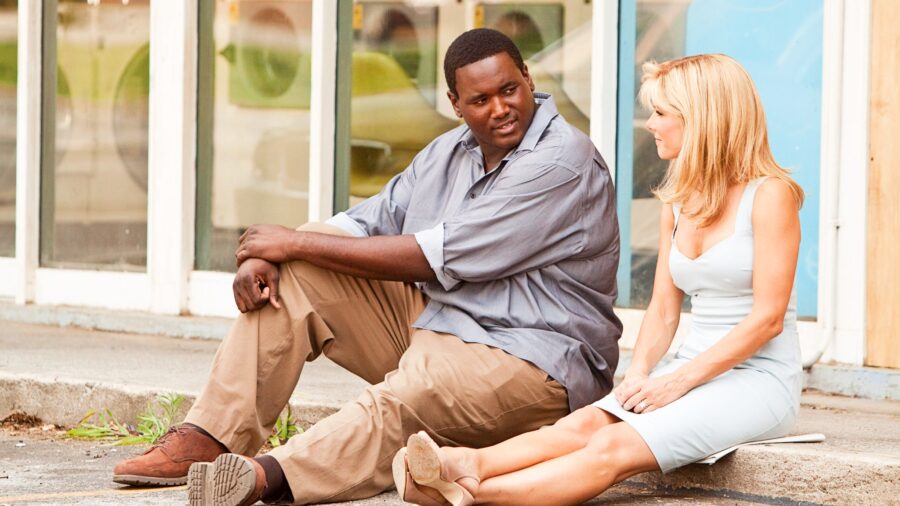
Sandra Bullock actually turned down the role of Leigh Anne Tuohy several times before accepting, later saying Tuohy’s deep Christian beliefs made her feel she would not be able to convincingly portray her. After meeting with the real-life Tuohy, Bullock accepted and actually accepted a pay cut in order to take points on the film’s profits instead. It can only be assumed that the star of The Lake House had a good feeling about this one. The Blind Side was an enormous and immediate box-office smash, eventually grossing over $300 million of a $29 million dollar budget; it also unusually had greater box office performance on its second weekend in theaters than its premiere. It was a true word of mouth success, eventually knocking a Twilight franchise movie out of first place, no easy task. It was also the highest-grossing opening weekend of Sandra Bullock’s career, and eventually became the highest-grossing sports drama of all time. Take that, Field of Dreams.
But for all its popular success, The Blind Side was also almost immediately controversial. While some audiences were drawn to the theater to revel in its feel-good story of a family standing by their adoptive son and an underprivileged person achieving success, it also was quickly criticized for supporting racist stereotypes. Many a thinkpiece has been written about the narrative of Sandra Bullock’s white, wealthy character essentially rescuing a passive, nearly-mute black man, as well as the many negative portrayals of other people of color in the film. Michael Oher himself was publicly critical of his portrayal in the film, feeling it diminished his understanding of the game of football and portrayed him as lacking in intelligence, rather than having had little to no access to education.
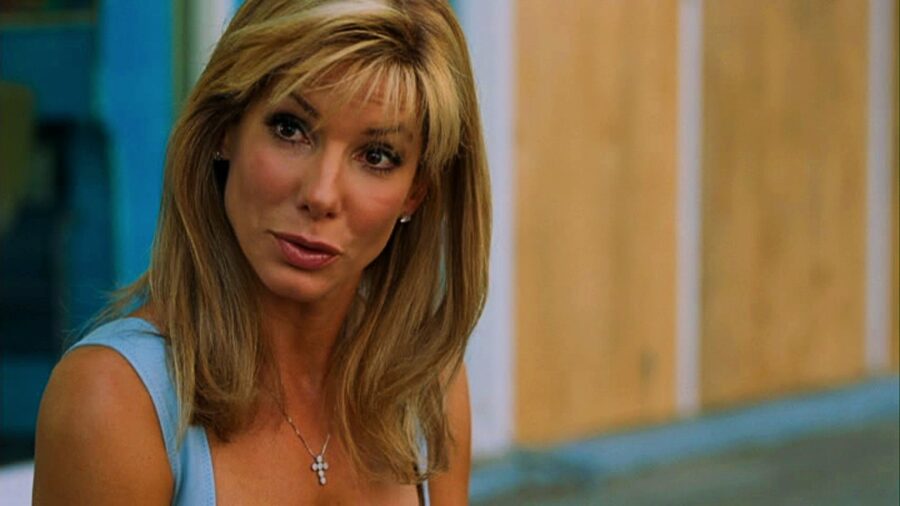
The Blind Side will doubtlessly remain a debated and controversial film, as a “true story” that inadvertently or not reinforces a white savior narrative that is deeply entrenched in American society. For better or worse, it gave Sandra Bullock perhaps the single biggest film of her career (we’ll see how The Lost City does) and won her the most prestigious award in film acting. Funnily enough, at the same time as she finally was being lauded for making a dramatic turn, she released a movie in the genre she had always had success in previously: the romantic comedy. All About Steve was an enormous flop and currently has a dismal 6% on Rotten Tomatoes. It netted Sandra Bullock the Razzie, which she showed up in person to the ceremony to accept, giving each audience member a copy of the movie. The next day, she won the Academy Award. What a year, right?










